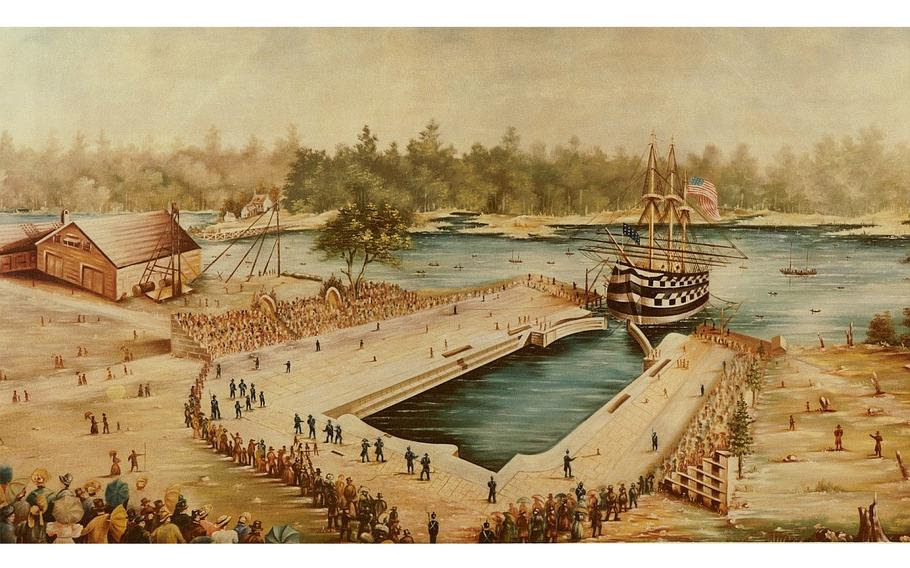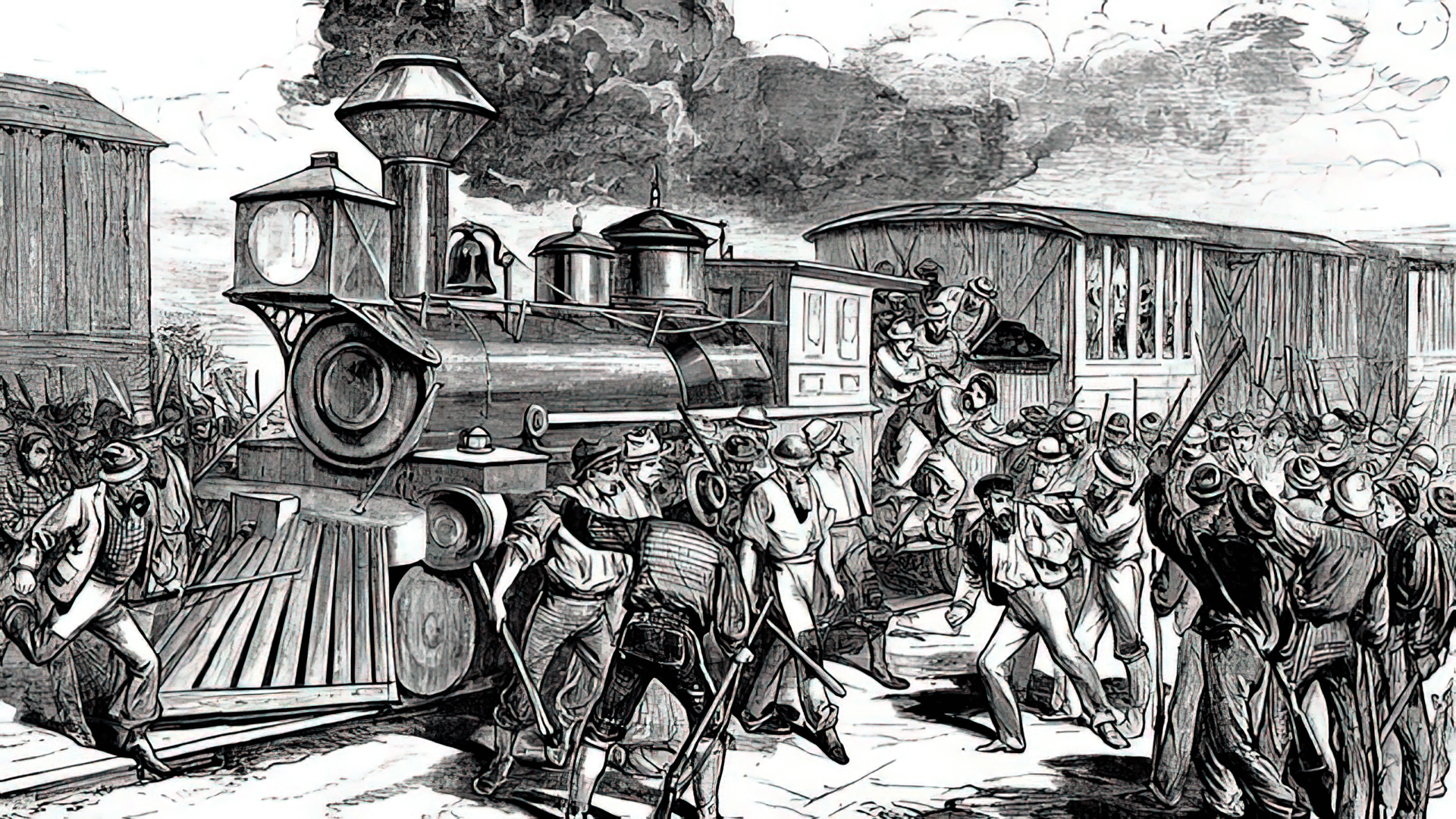Emancipation
The Political Writings of Marx and Engels: Part II, Surveys From Exile
Online: Zoom link will be provided to registered participantsThis group is reading and discussing original texts by Marx and Engels about their theory of class struggles as the motive force of human social evolution and the modern working class as the political antagonist of the capitalist system. The primary text is the anthology 'Karl Marx: The Political Writings,' recently published by Verso. In this part 2, we will be reading the "Surveys From Exile" section, which begins with "The Class Struggles in France 1848-1850" and takes us through Marx's articles on the Civil War in the United States.
Towards a Revolution in Labor History
Online: Zoom link will be provided to registered participantsA reading of Theodore W. Allen's unpublished manuscript, "Towards a Revolution in Labor History," convened with Sean Ahern. According to Allen, "the original sin of 'white' labor historiography lies in the misbegotten concept that excludes the Black bond-laborers from the 'working class.'”
Towards a Revolution in Labor History
Online: Zoom link will be provided to registered participantsA reading of Theodore W. Allen's unpublished manuscript, "Towards a Revolution in Labor History," convened with Sean Ahern. According to Allen, "the original sin of 'white' labor historiography lies in the misbegotten concept that excludes the Black bond-laborers from the 'working class.'”
The Political Writings of Marx and Engels: Part II, Surveys From Exile
Online: Zoom link will be provided to registered participantsThis group is reading and discussing original texts by Marx and Engels about their theory of class struggles as the motive force of human social evolution and the modern working class as the political antagonist of the capitalist system. The primary text is the anthology 'Karl Marx: The Political Writings,' recently published by Verso. In this part 2, we will be reading the "Surveys From Exile" section, which begins with "The Class Struggles in France 1848-1850" and takes us through Marx's articles on the Civil War in the United States.
Towards a Revolution in Labor History
Online: Zoom link will be provided to registered participantsA reading of Theodore W. Allen's unpublished manuscript, "Towards a Revolution in Labor History," convened with Sean Ahern. According to Allen, "the original sin of 'white' labor historiography lies in the misbegotten concept that excludes the Black bond-laborers from the 'working class.'”
Reading Du Bois’s Black Reconstruction
Online: Zoom link will be provided to registered participantsA close reading over 10 weeks of W.E.B. Du Bois's classic work, Black Reconstruction, with Sean Ahern. The book provides a basis for a much overdue revolution in US labor history. As Du Bois so eloquently and bluntly put in in 1935: “The South, after the war, presented the greatest opportunity for a real national labor movement which the nation ever saw or is likely to see again for many decades. Yet, the labor movement, with but few exceptions, never realized the situation. It never had the intelligence or knowledge, as a whole, to see in black slavery and Reconstruction, the kernel and meaning of the labor movement in the United States.”
Reading Du Bois’s Black Reconstruction
Online: Zoom link will be provided to registered participantsA close reading over 10 weeks of W.E.B. Du Bois's classic work, Black Reconstruction, with Sean Ahern. The book provides a basis for a much overdue revolution in US labor history. As Du Bois so eloquently and bluntly put in in 1935: “The South, after the war, presented the greatest opportunity for a real national labor movement which the nation ever saw or is likely to see again for many decades. Yet, the labor movement, with but few exceptions, never realized the situation. It never had the intelligence or knowledge, as a whole, to see in black slavery and Reconstruction, the kernel and meaning of the labor movement in the United States.”
Reading Du Bois’s Black Reconstruction
Online: Zoom link will be provided to registered participantsA close reading over 10 weeks of W.E.B. Du Bois's classic work, Black Reconstruction, with Sean Ahern. The book provides a basis for a much overdue revolution in US labor history. As Du Bois so eloquently and bluntly put in in 1935: “The South, after the war, presented the greatest opportunity for a real national labor movement which the nation ever saw or is likely to see again for many decades. Yet, the labor movement, with but few exceptions, never realized the situation. It never had the intelligence or knowledge, as a whole, to see in black slavery and Reconstruction, the kernel and meaning of the labor movement in the United States.”
Reading Du Bois’s Black Reconstruction
Online: Zoom link will be provided to registered participantsA close reading over 10 weeks of W.E.B. Du Bois's classic work, Black Reconstruction, with Sean Ahern. The book provides a basis for a much overdue revolution in US labor history. As Du Bois so eloquently and bluntly put in in 1935: “The South, after the war, presented the greatest opportunity for a real national labor movement which the nation ever saw or is likely to see again for many decades. Yet, the labor movement, with but few exceptions, never realized the situation. It never had the intelligence or knowledge, as a whole, to see in black slavery and Reconstruction, the kernel and meaning of the labor movement in the United States.”
Reading Du Bois’s Black Reconstruction
Online: Zoom link will be provided to registered participantsA close reading over 10 weeks of W.E.B. Du Bois's classic work, Black Reconstruction, with Sean Ahern. The book provides a basis for a much overdue revolution in US labor history. As Du Bois so eloquently and bluntly put in in 1935: “The South, after the war, presented the greatest opportunity for a real national labor movement which the nation ever saw or is likely to see again for many decades. Yet, the labor movement, with but few exceptions, never realized the situation. It never had the intelligence or knowledge, as a whole, to see in black slavery and Reconstruction, the kernel and meaning of the labor movement in the United States.”
Reading Du Bois’s Black Reconstruction
Online: Zoom link will be provided to registered participantsA close reading over 10 weeks of W.E.B. Du Bois's classic work, Black Reconstruction, with Sean Ahern. The book provides a basis for a much overdue revolution in US labor history. As Du Bois so eloquently and bluntly put in in 1935: “The South, after the war, presented the greatest opportunity for a real national labor movement which the nation ever saw or is likely to see again for many decades. Yet, the labor movement, with but few exceptions, never realized the situation. It never had the intelligence or knowledge, as a whole, to see in black slavery and Reconstruction, the kernel and meaning of the labor movement in the United States.”
Reading Du Bois’s Black Reconstruction
Online: Zoom link will be provided to registered participantsA close reading over 10 weeks of W.E.B. Du Bois's classic work, Black Reconstruction, with Sean Ahern. The book provides a basis for a much overdue revolution in US labor history. As Du Bois so eloquently and bluntly put in in 1935: “The South, after the war, presented the greatest opportunity for a real national labor movement which the nation ever saw or is likely to see again for many decades. Yet, the labor movement, with but few exceptions, never realized the situation. It never had the intelligence or knowledge, as a whole, to see in black slavery and Reconstruction, the kernel and meaning of the labor movement in the United States.”
Reading Du Bois’s Black Reconstruction
Online: Zoom link will be provided to registered participantsA close reading over 10 weeks of W.E.B. Du Bois's classic work, Black Reconstruction, with Sean Ahern. The book provides a basis for a much overdue revolution in US labor history. As Du Bois so eloquently and bluntly put in in 1935: “The South, after the war, presented the greatest opportunity for a real national labor movement which the nation ever saw or is likely to see again for many decades. Yet, the labor movement, with but few exceptions, never realized the situation. It never had the intelligence or knowledge, as a whole, to see in black slavery and Reconstruction, the kernel and meaning of the labor movement in the United States.”
Reading Du Bois’s Black Reconstruction
Online: Zoom link will be provided to registered participantsA close reading over 10 weeks of W.E.B. Du Bois's classic work, Black Reconstruction, with Sean Ahern. The book provides a basis for a much overdue revolution in US labor history. As Du Bois so eloquently and bluntly put in in 1935: “The South, after the war, presented the greatest opportunity for a real national labor movement which the nation ever saw or is likely to see again for many decades. Yet, the labor movement, with but few exceptions, never realized the situation. It never had the intelligence or knowledge, as a whole, to see in black slavery and Reconstruction, the kernel and meaning of the labor movement in the United States.”
Theodore Allen’s ‘The Kernel and Meaning’: A Strategic Critique of U.S. Labor History
Online: Zoom link will be provided to registered participantsBefore Theodore W. Allen turned to his magnum opus, The Invention of the White Race, he drafted an essay "The Kernel and Meaning: A Contribution to a Proletarian Critique of U.S. Historiography." In it, he assessed how the industrial bourgeoisie successfully overturned plantation capital's rule while assuring its own ascendancy over the proletariat. Allen reviewed six commonly held explanations as to why, despite favorable objective conditions, the U.S. left and workers movements failed to establish socialism or even a permanent working-class party. Participants in this group will read and discuss the original, 160-page typescript of Allen's unpublished essay.


